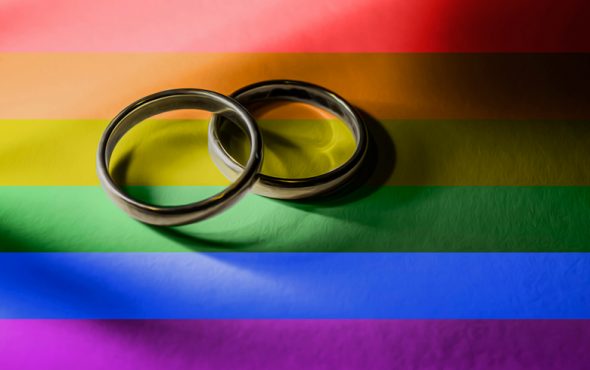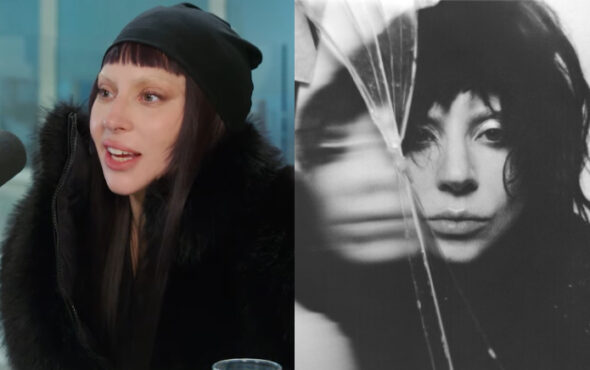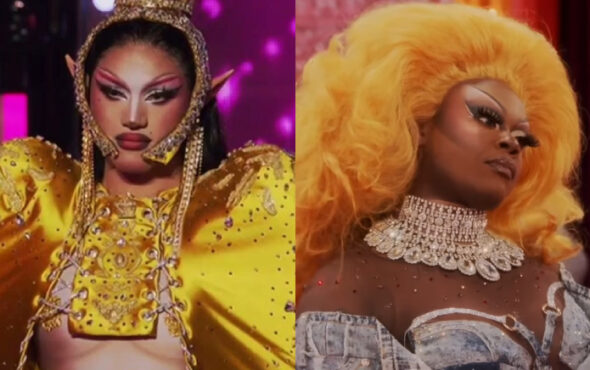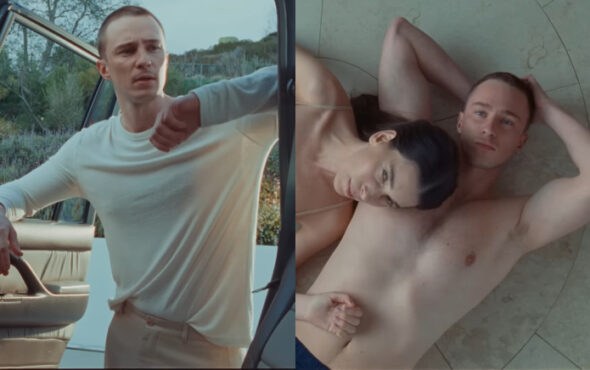
As the target of constant homophobic abuse as a teenager, Rimas Prokopovicius rarely heard anything positive about gay people when he was growing up in a provincial city in northern Lithuania.
Like many young LGBTQ+ people in the Baltic state, a member of the European Union since 2004, he blames the country’s “gay propaganda” law.
While the 2009 legislation has not been enforced in recent years, LGBTQ+ rights campaigners say it legitimises homophobic attitudes, curbs free speech and is hampering their fight for same-sex civil partnerships to be legalised.
“I’d really like to see the law (overturned) … Because, thinking about myself as a child, it was extremely hard to live with parents that don’t really accept you, then going to a school that is very intolerant,” said Prokopovicius, 21.
“It was pretty rough. I was bullied a lot,” he told the Thomson Reuters Foundation in the capital, Vilnius, where he studies molecular biology.
Dubbed the “gay propaganda” law by critics, the Lithuanian legislation bans sharing information with under-18s that “expresses contempt for family values (or) encourages … entry into a marriage and creation of a family other than stipulated in the Constitution”.
Supporters of the measure say it helps protect traditional family values.
Despite an outcry over similar legislation implemented recently in Hungary, the law has not received the same global attention.
However, it is being challenged in Europe’s top rights court in a case filed by a lesbian author, Neringa Dangvyde Macate, who died last year and whose mother is continuing the case.
In 2014, Macate’s book of fairytales that featured two same-sex couples was withdrawn from sale and then reissued in 2015 with a sticker stating it was potentially harmful for under-14s. The law has also been used to suppress television adverts.
“This law is something that does inhibit free speech,” said Robert Gilchrist, the U.S. ambassador to Lithuania, who himself is gay.
A government spokesperson could not immediately be reached to comment on the European court application or the status of the law, which officials have said has not been implemented since 2014 and was being discussed with LGBTQ+ groups.
This year, Hungary was condemned by the European Union for banning the dissemination of content deemed to promote “gender change and homosexuality” to under-18s, while Russia’s 2013 “gay propaganda” law regularly makes international headlines.
‘CHILLING EFFECT’
In Vilnius, LGBTQ+ student activists said they also thought the 2009 law had contributed to the widespread homophobia they encountered when growing up, making it harder to come to terms with their gender identity and sexuality.
“I knew what I was supposed to be and I was aiming for that, despite my better judgment,” said Eddie Balciunaite, 20, who leads Vilnius University’s LGBTQ+ society and identifies as transgender and non-binary – neither male nor female.
“There is a complete lack of information publicly for queer youth. Nobody talks about it or talks about it only negatively,” Balciunaite said, during a party to celebrate the LGBTQ+ society’s third anniversary.
Like other ex-Soviet Baltic states, Lithuania decriminalised gay sex in the early 1990s on becoming independent, but at the same time it banned same-sex marriage by defining marriage as solely between a man and a woman in its 1992 constitution.
The nation of 2.8 million is one of only six EU countries, along with neighbour Latvia, that have not legalised same-sex civil partnerships or marriage – a key demand of Lithuanian LGBTQ+ rights campaigners. Estonia allowed them in 2016.
A draft civil partnerships bill was rejected by 65 votes to 63 in May, after about 10,000 people marched against what they saw as a threat to family values on the streets of the capital, at a rally called “The Great Family Defence March”.
The group that organised the march, the Lithuanian Family Movement, wants the 2009 law to stay.
“The problem is LGBTQ+ propaganda starting from kindergartens, schools and universities up to TV shows and corporate marketing,” group spokesperson Viktoras Jasinskas said in emailed comments.
“You have to understand, that our society is mostly conservative, with … long-lasting traditions and family values,” he added.
But for the country’s LGBTQ+ community it continues to have a “chilling effect” on their struggle for equal rights, including the push for civil unions, said Tomas Raskevicius, the first Lithuanian MP to come out as gay before standing for parliament.
Raskevicius plans to submit a new civil partnerships bill by the end of the year, but for now is not targeting the anti-LGBTQ+ content law.
“It’s a very sensitive topic, politically, because it involves minors. So the plan now is to wait for the judgment of the European Court of Human Rights,” he said.
‘TRAPPED NARRATIVE’
Like Baltic neighbours Estonia and Latvia, Lithuania is increasingly seen as a progressive, tech-savvy start-up hub, but conservative attitudes prevail on social and family issues – especially outside the capital.
Nearly a third of LGBTQ+ Lithuanians said they had been discriminated against at work in the previous year – the highest rate in the European Union, a 2019 survey found. Nearly two-thirds said they were almost never open about their identities.
But there are small signs of change.
On Sept. 29, the Lithuanian Gay League (LGL) advocacy group held a conference on LGBTQ+ family rights at the Justice Ministry after parliament baulked at hosting the event.
Justice Minister Evelina Dobrovolska, who addressed the conference, said the government wanted to ensure relationship rights for all cohabiting couples, regardless of their gender.
“LGBTIQ rights are human rights … the question is how we can find political will,” she said over tea in her office in central Vilnius, adding that she was also waiting for the ECHR’s verdict on the 2009 law.
“I do believe Lithuania is liberal despite the fact we are having issues,” she said, citing the fact the LGBTQ+ conference had taken place.
Like Raskevicius, Dobrovolska belongs to the Freedom Party, a junior liberal member of the conservative-led ruling coalition that has pushed the same-sex unions bill.
Raskevicius cautioned, however, that there was still a long way to go, noting the president saying that he would have vetoed the previous same-sex civil union proposal as he judged it to be too similar to marriage.
“The (civil partnerships) bill we tabled in May was already a huge compromise. For example, it didn’t touch on the issue of adoption or parenting,” Raskevicius said.
“We’re trapped in this narrative of improving the law.”
Reporting by Rachel Savage; Editing by Helen Popper and Hugo Greenhalgh.
GAY TIMES and Openly/Thomson Reuters Foundation are working together to deliver leading LGBTQ+ news to a global audience.
(Clarifies in par 24 that Raskevicius was the first to come out as gay before standing for parliament)
* Rights activists say 2009 law legitimises homophobia
* Similar law in Hungary drew global condemnation this year
* Supporters say legislation protects family values



